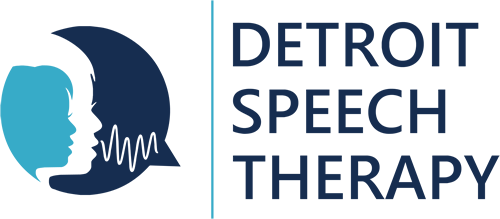A Glossary for Parents
While I always try my best to clearly explain terms and concepts to parents, you may feel the need to look up something I say while working with your child. The following are some words and phrases that may need clarification. I encourage you to ask any questions you may have to help your understanding!
| attention-deficit/hyperactivity disorder (ADHD) | a chronic condition including attention difficulty, hyperactivity, and impulsiveness |
| articulation | the ability to physically move the tongue, lips, teeth and jaw to produce sequences of speech sounds, which make up words and sentences. |
| articulation disorder | atypical production of speech sounds characterized by substitutions, omissions, additions or distortions that may interfere with intelligibility |
| ASHA | American Speech-Language-Hearing Association |
| auditory comprehension | understanding what one hears through listening |
| auditory processing disorder | refers to problems in how the brain understands speech. Although the sounds may be loud and clear, people with APD don’t pick up on the subtle differences between them. |
| childhood apraxia of speech (CAS) | a motor speech disorder that makes it difficult for children to speak. Children generally have a good understanding of language and know what they want to say but have difficulty learning or carrying out the complex sequenced movements that are necessary for intelligible speech. |
| communication disorder | an impairment in the ability to receive, send, process, and comprehend concepts or verbal, nonverbal and graphic symbol systems. A communication disorder may be evident in the processes of hearing, language, and/or speech |
| dysgraphia | neurological disorder of written expression that impairs writing ability and fine motor skills |
| dyslexia | language-based learning disorder which results in an unexpected difficulty in reading |
| executive functioning | responsible for ability to sustain attention, organize and plan, initiate and complete, problem solve and regulate emotions |
| expressive language | how your child uses words to express themselves |
| fluency disorder | interruption in the flow of speaking characterized by atypical rate, rhythm, and repetitions in sounds, syllables, words, and phrases |
| language | the comprehension and/or use of a spoken (i.e., listening and speaking), written (i.e., reading and writing), and/or other communication symbol system (e.g., American Sign Language) |
| language disorder | impaired comprehension and/or use of spoken, written and/or other symbol systems. The disorder may involve (1) the form of language (phonology, morphology, syntax), (2) the content of language (semantics), and/or (3) the function of language in communication (pragmatics) in any combination |
| morphology | the system that governs the structure of words and the construction of word forms. |
| phoneme | the smallest part of spoken language that makes a difference in meaning |
| phonemic awareness | the ability to identify and manipulate individual sounds (phonemes) in spoken words |
| phonological awareness | the ability to recognize and manipulate the spoken parts of words |
| phonological disorder | predictable, rule-based errors (e.g., fronting, stopping, and final consonant deletion) that affect more than one sound |
| phonological process | patterns of sound errors that typically developing children use to simplify speech as they are learning to talk |
| phonology | the sound system of a language and the rules that govern the sound combinations |
| Pragmatics | the system that combines the above language components in functional and socially appropriate communication |
| rapid automaticized naming (RAN) | ability to name letters, symbols, words, or objects in a quick and automatic manner |
| receptive language | how your child understands language |
| science of reading (SoR) | helps us to understand the cognitive processes that are essential for reading proficiency. It describes the development of reading skills for both typical and atypical readers. |
| semantics | the system that governs the meanings of words and sentences |
| simple view of reading | formula demonstrating the widely accepted view that reading has two basic components: word recognition (decoding) and language comprehension |
| speech disorder | an impairment of the articulation of speech sounds, fluency and/or voice. |
| speech intelligibility | how well someone can be understood when they are reading |
| speech sound disorder (SSD) | umbrella term referring to any difficulty or combination of difficulties with perception, motor production, or phonological representation of speech sounds and speech segments—including phonotactic rules governing permissible speech sound sequences in a language |
| speech-language pathologist (SLP) | a person who works to prevent, assess, diagnose, and treat speech, language, social communication, cognitive-communication, and swallowing disorders in children and adults |
| stuttering | the most common fluency disorder, is an interruption in the flow of speaking characterized by specific types of disfluencies |
| syntax | the system governing the order and combination of words to form sentences, and the relationships among the elements within a sentence |
| voice disorder | characterized by the abnormal production and/or absences of vocal quality, pitch, loudness, resonance, and/or duration, which is inappropriate for an individual's age and/or sex |
| working memory | the part of short-term memory that allows our brain to hold onto information for a brief period of time while doing something else |
